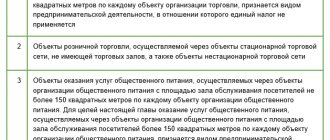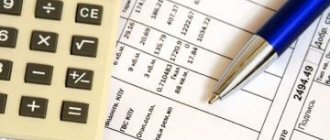Online cash register for non-cash payments to individuals
Before the adoption of the commented amendments, there was uncertainty as to whether it was necessary to use a cash register if the buyer, an individual, transferred money to the seller’s bank account.
The fact is that, according to paragraph 1 of Article 1.2 of the Federal Law of May 22, 2003 No. 54-FZ on the use of cash register systems (hereinafter referred to as Law No. 54-FZ), cash register equipment is generally used by all organizations and entrepreneurs when making payments. Let us say right away that this rule has been preserved in the new edition of Law No. 54-FZ. But the very concept of “calculations” has undergone serious changes. Previously, settlements meant the acceptance or payment of money using cash and (or) electronic means of payment. Experts argued whether a non-cash transfer from the buyer's account to the supplier's account falls under this definition. Officials claimed that it was covered (letter of the Ministry of Finance of Russia dated April 28, 2017 No. 03-01-15/26324, see “Ministry of Finance: when paying for goods non-cash through a bank, the seller is obliged to use cash register systems”). Experts expressed a different opinion, according to which the calculation is to transfer money through Internet banking, or through systems similar to the classic “bank-client”. If the client personally came to the bank and brought a payment order drawn up on paper (or filled it out on the spot), then during such an operation electronic means of payment are not used. Therefore, this type of non-cash payment does not apply to payments and does not require the use of cash register systems.
According to the amendments, settlements mean the acceptance (receipt) and payment of funds in cash and (or) by bank transfer. Thus, from now on, any non-cash transaction, along with cash payments, obliges the seller to use cash register equipment.
There are also clear rules regarding when, for non-cash payments, the seller must issue a cashier's check, and in what way the check should be transferred to the buyer. Thus, the check should be generated no later than the business day following the day of payment, but no later than the moment of transfer of the goods (new clause 5.4 of Article 1.2 of Law No. 54-FZ). You can send a check via the Internet to the client’s phone or email address. A paper receipt is usually given to the customer along with the goods. But there is another way - to give a paper check at the first direct interaction between the client and the seller or his authorized person (new clause 5.3 of Article 1.2 of Law No. 54-FZ).
Let us add that legislators have allowed temporarily not to generate cash receipts in a situation where an individual buyer comes to the bank and brings a “paper” order to transfer money, or fills it out on the spot. The deferment also applies when an individual pays for utilities or accepts a refund from the seller for a previously made advance. Under such circumstances, the seller has the right not to issue cash receipts until July 1, 2021. This is expressly stipulated in Part 4 of Article 4 of the law being commented on.
Postponement of the transition to online cash registers until 07/01/2021
In accordance with the new rules, individual entrepreneurs who do not have employees with whom employment contracts have been concluded have received the right not to use cash register systems when paying for goods, work and services until July 1, 2021 (Article 2 of Federal Law dated 06.06.2019 No. 129-FZ ).
But the deferment does not apply to all individual entrepreneurs without hired employees. To be able to work without an online cash register for another year, an individual entrepreneur must meet some mandatory requirements:
- provide services/perform work personally, without hiring employees;
- When selling goods, sell goods exclusively of own production.
Thus, if an individual entrepreneur is engaged in the resale of goods, the deferment does not apply to him, even if he has no other employees. If an individual entrepreneur independently, for example, makes repairs or sells, say, furniture of his own production, then he has the right not to use cash register until 07/01/2021.
| Who received a deferment of the transition to cash register until July 1, 2021 | Individual entrepreneurs without employees, independently providing services/performing work |
| Individual entrepreneurs without employees, selling their own products | |
| Who was exempted from using CCT? | Partnerships/cooperatives of property owners when accepting utility payments and paying for the services of the partnership/cooperative by the population |
| Educational organizations when paying for educational services to the population | |
| Physical education and sports organizations when paying for services in the field of physical education and sports | |
| Cultural organizations when paying for services in the field of culture | |
| Individual entrepreneurs selling theater tickets by hand or from a tray |
In this case, individual entrepreneurs lose the right to this deferment when hiring employees. If an employment contract is concluded, even with one employee, individual entrepreneurs are required to purchase and register a cash register no later than 30 calendar days from the date of conclusion of the contract.
Note that Federal Law No. 129-FZ dated June 6, 2019 speaks specifically about employment contracts. That is, theoretically, individual entrepreneurs, in order to obtain a deferment in the transition to online cash register systems, are not prohibited from hiring employees under GPC agreements. For example, under a contract or paid services.
But this does not mean that tax authorities will not be able to re-qualify a work contract into an employment contract in court and impose on such individual entrepreneurs the obligation to use cash register systems as early as 07/01/2019.
Settlements between organizations and individual entrepreneurs
Both the previous and the new editions of Law No. 54-FZ say that when making payments between two organizations, two individual entrepreneurs, or between an organization and an individual entrepreneur, cash register equipment must be used in two cases. The first is the acceptance and withdrawal of cash. The second is the acceptance and issuance of non-cash funds using an electronic means of payment with its presentation (for example, using a plastic card). As for all other non-cash payments, they are not covered by the CCP law.
Until the end of June 2021, checks issued for settlements between companies and entrepreneurs will be the same as for settlements with individuals. But from July 2021, a new paragraph 6.1 of Article 4.7 of Law No. 54-FZ will come into force. It states that when making payments between legal entities and individual entrepreneurs, it is necessary to issue a check, which must contain additional details. This is the name of the buyer (that is, the name of the organization or full name of the entrepreneur) and the TIN of the buyer. Plus, the receipt will have to indicate the following data (if available): information about the country of origin of the goods; excise tax amount and registration number of the customs declaration.
Please note: you can fulfill all the requirements of the current version of Law 54-FZ for the details in the cash receipt using the “Kontur.Market” service. The service also ensures the transfer of data on punched checks to the INFS through the OFD. In addition, “Kontur.Market” is integrated with the service for maintaining records and submitting reports “Kontur.Accounting”, which allows you to quickly and accurately reflect sales data in tax and accounting.
A complete set for online cash register: for the price of a cash register you will receive a cash register, OFD and the Kontur.Market product accounting system Send a request
Changing settings in cash register due to cancellation of UTII
From January 1, 2021, UTII ceased to exist.
Payers of this tax had to decide which taxation system to switch to - OSNO, simplified tax system, or PSN. Some have chosen Professional Income Tax (PIT, better known as self-employment) as an alternative. Those who are legally required to use cash registers were faced with a problem - due to a change in the taxation system, they needed to change the settings in the cash register. To help businesses, the Federal Tax Service has developed a special service for changing cash register settings - thanks to it, you can do this yourself, without intermediaries. Just select a CCP model from the list and the service will offer you detailed instructions.
Usually, when the settings are changed, an application for re-registration of the cash register is submitted to the tax office. But if you change the taxation system, you don’t need to do this - just change the settings in the cash register itself.
Since the tax system is reflected in the receipt, it is important that the first sale that a business makes under the new tax system is made with the new data on the receipt.
Innovations for individual entrepreneurs on PSN
General case
According to the previous version of Law No. 54-FZ, most entrepreneurs with a patent should have started using online cash registers from July of this year. However, the commented amendments generally relieved individual entrepreneurs on PSN from this obligation. The new paragraph 2.1 of Article 2 of Law No. 54-FZ states that entrepreneurs on PSN may not issue a cash receipt if, in return, they issue customers a document confirming the fact of payment. For convenience, we will call it a special document.
The special document must contain the name and serial number, as well as some details required for a cash receipt: the seller’s TIN, his tax system, etc. (a complete list of details is given in paragraphs 4-12 of paragraph 1 of Article 4.7 of Law No. 54-FZ). It is not necessary to indicate only those details of the check that relate to the cash register, for example, the registration number of the cash register, fiscal sign, etc.
Exceptions
However, there were some exceptions. According to the new edition of Law No. 54-FZ, those individual entrepreneurs in the patent system who are engaged in the following types of activities will still have to use CCP:
- hairdressing and beauty services;
- repair and maintenance of household radio-electronic equipment, household cars and household appliances, watches, repair and manufacture of metal products;
- maintenance and repair of motor vehicles and motor vehicles, machinery and equipment;
- road freight and passenger transportation;
- veterinary services;
- conducting physical education and sports classes;
- provision of services for the transportation of passengers and cargo by water transport;
- management of hunting and hunting;
- engaging in medical or pharmaceutical activities;
- rental services;
- retail trade and catering services;
- production of dairy products;
- commercial and sport fishing and fish farming;
- repair of computers and communication equipment.
At the same time, these individual entrepreneurs (except for those involved in retail and catering) have been given a deferment: they may not issue cash receipts until July 1, 2021.
Calculate the cost of a ready-made solution for connecting an online cash register
If an individual entrepreneur has taken advantage of the deferment, then until July 2021 he can issue sales receipts, receipts or other simple documents confirming payments to customers. A simple document must meet certain requirements, but these are different from those required for a special document. So, in a simple document you need to indicate the following details: name, serial number, date of issue, name or full name of the seller, his tax identification number, name and quantity of goods, payment amount, as well as the position, surname, initials and personal signature of the issuing person.
Also see “New amendments to the law on cash registers: who will be completely exempt from using online cash registers.”
Innovations for vending machines
According to the old rules, the cash register, which was used as part of a vending machine, had to be installed inside its body. The commented amendments introduce a number of exceptions to this general rule. Thus, the online cash register may be located outside the machine body, which charges fees for services for the transportation of passengers, luggage, cargo and cargo luggage. In this case, it is necessary that the easily readable serial number of the vending machine is located on the case in an accessible place. If all conditions are met, then the cash register, located separately from the machine, may not issue checks, and if the buyer did not provide his email address or phone number, then the online cash register may not send checks via the Internet (new sub-clause 1, clause 5.1 and p. 5.2 Article 1.2 of Law No. 54-FZ).
From February 2021, it will be allowed to install a cash register separately from the machine if its display displays a QR code that allows the buyer to read and identify an online receipt. If you use such cash registers, you don’t have to print or send checks to customers. True, there is an additional condition here - the machine should not sell excisable or technically complex products and goods subject to mandatory labeling (new subparagraph 2, paragraph 5.1, article 1.2 of Law No. 54-FZ).
There are also innovations for machines where payments are made exclusively with coins. If these machines are not powered by electrical energy, including batteries, then there is no longer a need to install cash register equipment in them (new clause 1.1 of Article 2 of Law No. 54-FZ).
In what cases is it necessary to maintain an online cash register?
After the amendments to 54-FZ came into force, there are practically no areas where an online cash register is required.
Online cash register is mandatory for:
- Individual entrepreneurs and legal entities on UTII who provide household services, rent out premises, carry out work in a car service center,
- Individual entrepreneurs on UTII and the patent system, working in the catering industry, but not having employees registered under an employment contract. For example, owners of kiosks selling food, coffee, and fast food who work independently.
- Individual entrepreneurs who have vending machines without hired employees, including owners of vending machines, for example, selling shoe covers, coffee, and packaged food. In this case, the machine’s serial number must be indicated on the body of the machine in an accessible place so that buyers can find it without much effort.
- Entrepreneurs who carry out non-cash payments, that is, all online stores and online sales platforms.
- Some individual entrepreneurs on the patent taxation system who provide services for the repair of machinery and equipment, passenger and cargo transportation, veterinary medicine, sports activities, hunting and fishing, provision of medical services, sales in retail stores with an area of up to 50 square meters, catering in rooms without a hall and with a hall up to 50 square meters.
- Insurance agents, credit organizations, state and municipal libraries and paid parking.
It is worth noting that individual entrepreneurs on the simplified tax system did not receive exemption from installing online cash registers.
IMPORTANT: in May 2021, further amendments were made to 54-FZ and a number of categories of entrepreneurs received a deferment in installing an online cash register until 2021. The amendments apply to individual entrepreneurs without employees who sell goods of their own production, provide services themselves, or perform certain work. This deferment is given so that entrepreneurs can decide on the form of doing business - self-employment or individual entrepreneurship. Let me remind you that the self-employment regime is now a pilot project, which is being implemented in Moscow and the Moscow region, the Kaluga region and the Republic of Tatarstan. If this experiment is successful, then self-employment will become available to all of Russia.
In addition, after July 2021, individual entrepreneurs who operate in hard-to-reach areas will be able to continue to operate without a cash register. The list of such regions has been approved by state authorities of the constituent entities of the Russian Federation.
Entrepreneurs working in the medical and pharmaceutical sector in rural areas, as well as those who carry out preferential activities, can still work without a cash register.
Benefits:
- Street vending (ice cream, kvass, newspapers, vegetables),
- auxiliary workers,
- Those working in the field of helping vulnerable categories of people, for example, caring for the sick or elderly, babysitting,
- Entrepreneurs who rent out apartments along with parking spaces located in an apartment building owned by an individual entrepreneur.
Innovations for payment agents and insurers
In Article 1.2 of Law No. 54-FZ, a new paragraph 5.5 appeared, dedicated to payment agents and subagents who make payments using automatic devices. The new rule obliges them to issue cash receipts on paper or send them electronically. There is an alternative option: send the client information identifying the online check. These include: registration number of the cash register, amount, date and time of payment, etc. Using this information, the client will be able to find and receive his check for free on the online information resource indicated by the seller.
Amendments are also provided for insurers. The new paragraph 11 of Article 2 of Law No. 54-FZ is addressed to insurers who pay policyholders through agents who are not organizations or individual entrepreneurs. In such a situation, the insurer is obliged to issue a check or strict reporting form in electronic form and send it to the policyholder.
Complete set for online cash register: cash register at a special price, OFD, configuration of cash register with registration with the Federal Tax Service and a discounted inventory system Send a request
FINES for working without an online cash register
If, during an inspection, the Federal Tax Service discovers that an enterprise is operating without a cash register, it faces a fine.
For individual entrepreneurs, the fine ranges from 25% to 50% of revenue received without a cash register, but not less than 10 thousand rubles.
For an organization - from 75% to 100% of unaccounted revenue, but not less than 30 thousand rubles.
If the violator continues to work without a cash register and his revenue has already amounted to at least 1 million rubles, the manager will be prohibited from holding this position for a period of one to two years, and the activities of the organization or individual entrepreneur will be suspended for up to 90 days.
There is an opinion among entrepreneurs that the Federal Tax Service does not pay attention to businesses with a turnover of less than 10 million rubles per month, and some individual entrepreneurs may decide not to buy a cash register until the first fine. But the Federal Tax Service does not have to carry out comprehensive audits; any buyer who has not been given a check can complain to the tax office ; the Federal Tax Service has a special mobile application for this , available to anyone.
Types of activities that do not require the use of CCP
Legislators have adjusted the list of activities that allow not to use cash register equipment. Here are the main changes:
- it has been clarified that the exemption from CCT applies only to newspapers and magazines printed on paper;
- a condition has been added that peddling trade in goods subject to mandatory marking with means of identification does not fall under the exemption from CCP;
- the exemption from CCP has been extended to peddling trade on board aircraft (previously it was only valid for trains, handcarts, bicycles, baskets and trays);
- The sale of bottling milk and drinking water was exempted from the use of CCP (previously the sale of ice cream and soft drinks was exempt);
- Paid services provided by state and municipal libraries are exempt from the use of cash registers;
- the provision of paid parking spaces on public roads and on regional, municipal and land plots is exempt from the use of CCP;
- From July 1, 2021, the exemption that was in effect for the sale of travel tickets in public transport will be cancelled.
What has changed in the processing of checks and BSO
The law under comment contains amendments regarding the mandatory details of a cash receipt and a strict reporting form. Firstly, there was a clarification that the price per unit must be indicated in the currency of the Russian Federation. Secondly, the wording of the form of payment has changed: previously it was “cash” and (or) “electronic”, now it has become “cash” and (or) “non-cash”. Thirdly, the QR code has become a mandatory requisite for a cash register receipt and BSO (Clause 1, Article 4.7 of Law No. 54-FZ, as amended).
In addition, from July 2021, special rules will come into force for checks and BSOs, which are issued when paying out winnings in the lottery and gambling, as well as when receiving an insurance premium and when receiving an insurance payment. In such checks and BSO, in addition to the usual details, you will need to indicate the name or full name of the client or policyholder, and his TIN (for an individual - the series and number of the passport). This is provided for by the new paragraph 6.2 of Article 4.7 of Law No. 54-FZ.
From January 1, 2021, fines will begin for violating the CCP Law
According to clause 2 of the Decree of the Government of the Russian Federation dated 04/03/2020 No. 438 and clause 5 of the Order of the Federal Tax Service of Russia dated 03/20/2020 No. ED-7-2 / [email protected] , inspections of compliance with the requirements of the Law on the application of cash register systems were prohibited until December 31, 2021 . As of January 1, 2021, the moratorium ended.
The period for bringing to responsibility for violations in the field of using an online cash register is one year (Part 1, Article 4.5 of the Code of Administrative Offenses of the Russian Federation). This means that the Federal Tax Service can issue a fine for a violation that was committed last year.
There is a way to avoid sanctions. To do this, correct the violation before the tax office finds out about it. How to do this, read the article about correcting errors on cash registers.
Changes for fiscal drives
Until recently, only two types of fiscal drives were presented on the market: with a validity period of 36 months and a validity period of 13 months. Now they have added drives with a validity period of 15 months. It is possible that in the future there will be drives designed for a different period.
Legislators took these changes into account. Previously, paragraph 6 of Article 4.1 of Law No. 54-FZ stated that in general, users in special modes are required to use fiscal drives with a validity period of at least 36 months. And only for some users (in particular, for those combining special mode and OSNO) it was allowed to use a drive with a validity period of at least 13 months. After the adoption of the commented amendments, the same users are allowed to use fiscal accumulators with a validity period of less than 36, but not less than 13 months. We see that drives with a maturity of 15 months fall into this period.
Buy a fiscal drive and enter into an agreement with the OFD







